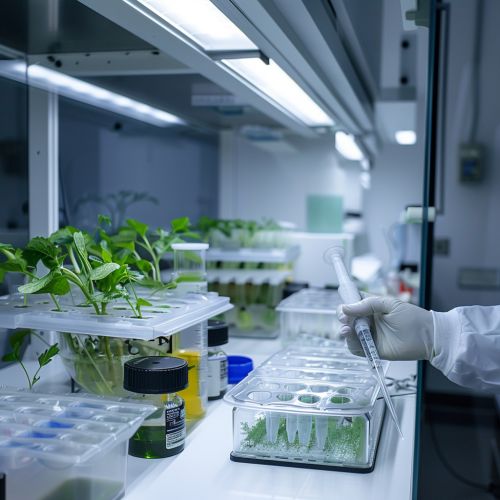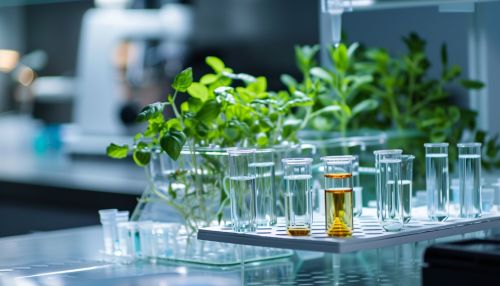Genetically Modified Organisms
Introduction
Genetically modified organisms (GMOs) are organisms whose genetic material has been altered using genetic engineering techniques. These techniques generally involve the manipulation of DNA to achieve specific traits in an organism, such as resistance to certain pests or environmental conditions, or the production of certain nutrients.


History and Development
The concept of genetically modifying organisms has its roots in the ancient practice of selective breeding, where organisms with desirable traits were bred to produce offspring with these traits. However, the modern field of genetic engineering began in the 1970s with the development of recombinant DNA technology. This technology allowed scientists to directly manipulate an organism's genetic material in a way that was not possible with traditional breeding methods.
Techniques
There are several techniques used in the genetic modification of organisms. These include:
- Recombinant DNA technology: This involves the insertion of one or more specific genes from one organism into the DNA of another. This can be done using a variety of methods, including the use of plasmids or bacteriophages, or by direct injection of the foreign DNA into the host organism.
- CRISPR-Cas9: This is a more recent technique that allows for precise editing of an organism's DNA. It involves the use of a protein called Cas9, which can cut DNA at specific locations, and a guide RNA that directs the Cas9 to the correct location.
- Transgenesis: This involves the introduction of a foreign gene into an organism's genome. This is often done using a method called microinjection, where the foreign gene is injected directly into the nucleus of a fertilized egg.
Applications
Genetically modified organisms have a wide range of applications, including in agriculture, medicine, and industry.
- Agriculture: Genetically modified crops are often engineered to be resistant to pests or to tolerate herbicides. This can result in higher crop yields and reduced use of chemical pesticides and herbicides.
- Medicine: Genetic modification is also used in the development of gene therapies for various diseases. This can involve the modification of a patient's own cells to treat a disease, or the creation of genetically modified organisms that produce therapeutic proteins.
- Industry: Genetically modified organisms are also used in industry, for example in the production of biofuels, or in the creation of new materials.
Controversies and Ethical Considerations
The use of genetically modified organisms is a topic of ongoing debate, with various ethical, environmental, and health concerns being raised. These include concerns about the potential for GMOs to crossbreed with wild relatives, the impact of GMOs on biodiversity, and the potential health effects of consuming genetically modified food.
